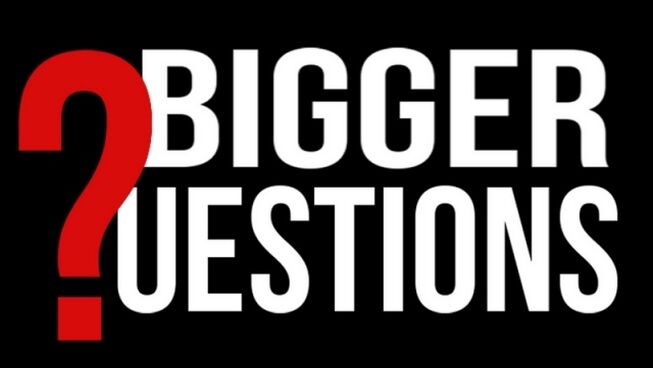Why is there never enough time?
Do you try to do too much? We talk with someone who tries to do too much and struggles to find balance.
Our guest is Michelle Monro (adjunct lecturer Melbourne School of Theology).
We talk about being busy, the seasons of life and the remarkable ways in which God has cared for her despite very difficult circumstances.
This Bigger Questions episode is a re-release of Episode 28 (recorded under the show's former title, hence the absence of episode number).
Help us keep asking Bigger Questions. Support the show for as little as US$1 per podcast on Patreon.
Bigger questions asked in the conversation
Michelle, how are you? Are you feeling busy?
Tell us what you have to manage in your life?
Do you feel like you try to do too much in your life?
Smaller Questions
Your experience resonates with many in the modern world. When I ask most workers in Melbourne how they are - the common response is ‘busy’. Now, whilst we are all busy and feeling stretched - research shows that office workers actually waste time.
Our smaller questions are on how much you know about office time wasting.
Time
So are we simply busy because we waste time or we’re fixing other people’s problems?
We’re busy, you’re busy. You have lots of competing priorities. Why do you think we feel that there is never enough time?
On average, people in rich countries have more leisure time than they used to. Is there an expectation issue?
In an opinion piece published by The Economist at the end of 2014, they claimed that ever since a clock was first used to synchronise labour in the 18th century, time has been understood in relation to money. Hence once hours are financially quantified, people worry more about wasting, saving or using them profitably. When economies grow and incomes rise, everyone’s time becomes more valuable. And the more valuable something becomes, the scarcer it seems. So is one of the underlying issues in our busyness essentially that ‘time is money’?
“The more cash-rich working Americans are, the more time-poor they feel,” reported Gallup, a polling company, in 2011. Is our sense of busyness a problem of perception?
Michelle's story
What convinced you to become a Christian believer?
The Bible's answer: Ecclesiastes
The Old Testament wisdom book of Ecclesiastes, Chapter 3 contains a beautiful poem reflecting on ‘time’. It suggests that there is a time and a season for everything. As verses 2 and 3 outline,
a time to be born and a time to die,
a time to plant and a time to uproot,
3 a time to kill and a time to heal,
a time to tear down and a time to build
Michelle, what do you make of the poem?
The poem appreciates the full range of human experience - and the value of wisdom. For example verse 4,
a time to weep and a time to laugh,
a time to mourn and a time to dance,
What do you make of this?
Is the poem fatalistic? That is, that good stuff and bad stuff happens and it’s all a bit random?
Does it affect the meaning of the poem if there isn't a God? i.e. can you have ‘seasons of life’ if life is unguided and random?
How do you resonate with the poem personally?
How does this poem impact your view of time?
How can we work out what is the ‘wise’ approach and what’s appropriate at particular times in our lives?
More on Ecclesiastes
The poem finishes in verse 8 and then in verses 9 and following there is a response:
9 What do workers gain from their toil? 10 I have seen the burden God has laid on the human race. 11 He has made everything beautiful in its time. He has also set eternity in the human heart; yet no one can fathom what God has done from beginning to end.
What does this mean?
What does it mean that God has set eternity in the human heart?
How can we ‘fathom what God has done’?
How does this perspective affect the way you view time and how you use time?
The Big Question
So Michelle, time - why is there never enough?





